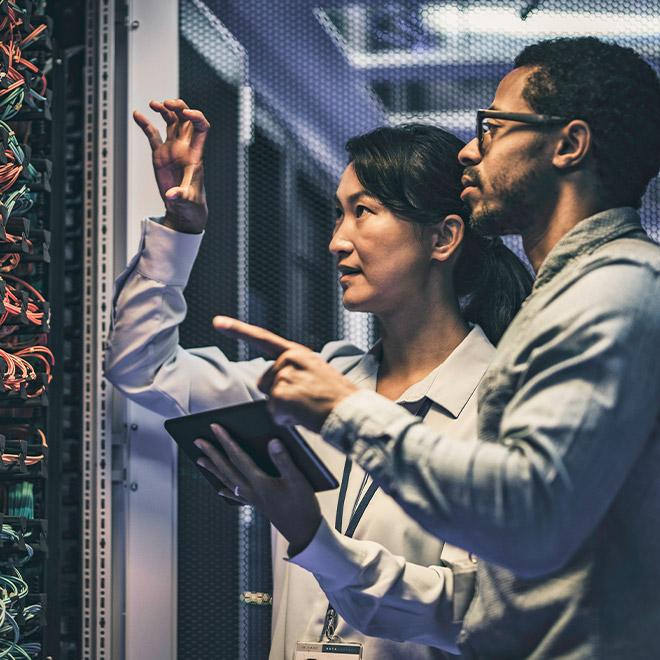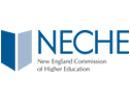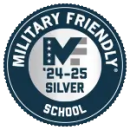CMIT-200
Explore Management Information Systems
Today's organizations are seeking professionals who can bridge the gaps between business and information technology. Champlain’s online management information systems degree will help you advance your career in this growing field, more to the table than your valuable IT skills as both an experienced business and information technology professional.
Finish your program faster with credit for prior learning and experience.
Differentiate your degree and get your resume noticed with an added certificate. Speak with your advisor for information.
Build Your Career Future
Graduates of Champlain's management information systems online degree will have the skills needed for project management for enterprise resource planning (ERP), database management systems, and information systems design. With a focus on both foundational business and information technology skills (including knowledge of 7+ key applications, platforms, and programming languages, listed below),in addition to key soft skills like problem-solving and critical-thinking, you'll emerge from the program as a well-rounded employee prepared to tackle today's emerging technologies challenges, and with a diverse skill set that can carry you through your career.
Program Curriculum
Learn more about Champlain's 100% online management information systems bachelor's degree, designed for working professionals.
Champlain's online management information systems courses encompass the top skills needed by today's IT professionals. Graduates of the program are required to complete the following courses.
IT Courses (33 credits)
Business Courses (27 credits)
Business Elective (6 Credits)
General Education Courses (42 credits)
General Electives (12 credits)
Note: Some of the courses in this program are available in 15-week terms only. Please contact your advisor for details and information on how this may impact your time to completion.
This course provides students with an understanding of the many different devices and technologies, from historical to emerging, that are required to design and build networks. In a broad survey of concepts and terminology, students will learn about topology, communications, protocols, and security, and to diagram basic networks to specification.
From day one, students in this course are problem solving, first in terms of algorithmic design and then as early as week two via programming in the latest version of Python, using PyCharm. Students begin by writing a program to have a conversation, having strings and numbers as input, and advance, by week seven, to building a working password saver program, capable of looking up, adding (and encrypting), and storing passwords.
In this course, students must use previously acquired and new, advanced skills in SQL (Structured Query Language) to modify an existing database to the needs of a client. Students write stored procedures and common table expressions, and learn to debug, rollback and use system stored procedures.
Prerequisites
In the first of two capstone courses for the Management Information Systems (MIS) degree, students explore the role, types, and planning and development of MIS. Individual and team assignments reinforce learning of key concepts related to strategic initiatives and global trends, supply chain management, and innovative organizations and e-business initiatives.
Prerequisites
NETW-330, CMIT-310
In the second of two capstone courses for the Management Information Systems (MIS) degree, students design, plan, and develop a project that addresses a contemporary computer information system industry challenge and management problem. Students must consider people, processes and technology, including ethics and security, and present their proposals and solutions to the class and instructor.
Prerequisites
CMIT-410
This course, through guided research and hands-on learning experiences, provides students with an understanding of operating systems, including their core fundamental principles and how they work. Students are introduced to the three most popular operating systems for personal computers (Windows, OSX and Linux), and mobile operating systems, and learn about standard functions such as memory, process/thread, input/output, storage and device management.
This course covers the fundamentals of systems analysis while emphasizing the role of communication and other soft skills needed in IT and in business overall to be successful. The topics are useful for anyone who is involved in developing software system requirements and architectures (e.g., users, technical managers, product managers, technical leads, programmers, other software project team members, and clients).
Prerequisites
CMIT-135, CMIT-200, MGMT-260
Examines the basic principles and methodologies used in the design of both local and wide area networks. Topics include network options, analysis, component and protocol selection, performance considerations and RFP development.
Prerequisites
NETW-250 or NETW-260
Learn the basics and more in this course on Relational Database Management Systems (RDBMS) and SQL (Structured Query Language). Students propose a final project in the first module and then work, week-by-week, to design, create, and populate the database. Then, students learn to create queries and stored procedures.
Websites have three functions - to facilitate, enable and persuade - and are only useful if they can connect people and achieve definite goals. In this course, students learn to understand the concept of usability, and the roles of interaction, users, communication and collaboration as well as how to evaluate usability, and observe and test users.
Prerequisites
WEBD-215 OR SDEV-230
This hands-on course will cover the fundamentals of current Windows server systems and network administration. Topics will include the basics of installing the operating system, adding and managing users and groups, installing and managing services, Windows security objects and permissions, disaster recovery, and migration from previous versions of the operating system.
Prerequisites
CMIT-140
A hands-on course covering key components of the Linux operating system. Through hands-on activities students will gain a working knowledge of the Linux operating system. Topics include installation and configuration of Linux, using common commands and graphical interfaces, installing common server applications, User and group account management, as well as performance monitoring and security systems.
Prerequisites
CMIT-140
Accounting is the language of business. This course introduces the student to accounting from the point of view of the user of financial reports and is appropriate for personal as well as business applications. Students explore the impact of transactions on the financial position and profitability of a business, and analyze financial reports of real-world corporations.
Managerial accounting focuses on the needs of management for accounting information to make informed decisions in the internal operations of a company. Topics include decision-making, accounting for planning and control, cost-volume-profit relationships, and budgeting.
Prerequisites
ACCT-130
Provides an overview of the entire legal system, with an emphasis on contract rights. Discusses the essential elements of a contract, the breach of contracts and the remedies for breach. Presents business and consumer laws, including white-collar crime, landlord-tenant rights, real property interests and administrative law.
Students will explore foundational topics such as entrepreneurship, technology, ethics, leadership, and business development while examining the latest trends shaping the global business landscape. Through real-world case studies, hands-on activities, and collaborative projects, students will gain practical knowledge and skills to navigate the dynamic and evolving business environment. This course prepares students to understand business operations, think critically, and develop strategies for success in their future careers.
Students will learn about the application of positive individual and group strengths and capacities that can be recognized, evaluated, and expanded to advance organizational well-being. This course encourages students to apply positive organizational behavior processes to everyday challenges organizations face to drive positive workplace behaviors and outcomes. This course also helps students to practice and gain skills, knowledge, and competencies to become positive and impactful leaders and change-makers from whatever position they hold.
All businesses have information systems, and the vast majority of them are computerized. Students will study the development and use of information systems to achieve organizational goals. From a management perspective, students will learn how information systems enhance business processes, how to use information systems as a competitive advantage and their usefulness in integrating across organizations. Other topics include IS security, ethical issues surrounding information systems and the consequences of its international reach.
Project Management is the formal application of knowledge, skills, tools, and techniques to project-based activities to meet organizational requirements. Project management is accomplished through the use of processes such as Initiating, Planning, Executing, Monitoring and Controlling, and Closing. Project managers can divide projects into these phases to provide better management control with appropriate links to the ongoing operations of the organization. Collectively, these phases, known as the project life cycle, form the foundation for the practice of project management and are guided by the Body of Knowledge from the Project Management Institute (PMI).
Ensuring a positive experience and lasting customer/client relationships is crucial for business managers across employment sectors - public, private, and non-profit. Topics such as business process management, customer experience management, customer relationship management, customer service support, and related performance measurements and technologies are covered in this course. Assignments and discussions require application and synthesis of business knowledge and include global issues such as the generation of revenue through strong customer relationships and related outsourcing issues. Students also begin to view business as a group of integrated processes, rather than a group of functional silos.
Prerequisites
MKTG-115
This course introduces the core terminology and principles of marketing. Students learn about the marketing mix (product, price, place, and promotion), market segmentation, and how external factors such as the economy, technology, culture, and competition influence marketing decisions. The course also examines how marketing fits within an organization and contributes to business success, along with how ethical considerations, cultural awareness, global trends, and social responsibility shape marketing practices across industries. No prior business experience is required.
In addition to the following general education requirements, please fulfill a general education elective with any course from ARTS, COMM, CRIT, ENGL, HIST, MATH, PHIL, PSYC, SOCI, any CRIM except 225, or MKCM 120.
This course introduces students to the foundational concepts needed to communicate effectively in writing for academic study and professional development. Students will also learn to read critically to evaluate an author's message. Students will be introduced to rhetorical modes and their role in the development of written communication. Students will also learn how to use revision strategies to create written communication that meets its intended purpose for its intended audience
This course builds on students' proficiency in the writing process and rhetorical modes to introduce the use of sources in written communication. Students will practice information literacy as they learn to determine information needs from sources, develop effective search strategies, and incorporate sources in written communication, legally and ethically.
Prerequisites
Complete ENGL-100
Starting with a frame of human communication as a dynamic system of interactions in which people make choices that impact their relationships, other people, and themselves, students will define theory-informed communication concepts and processes, and critically examine how they apply to everyday life across a variety of contexts. Students will reflect on how the theory, concepts and processes apply to their own lives in becoming competent communicators who are knowledgeable, skilled, and versatile.
This course examines the principles of effective small group interaction. Students will analyze group development stages and small group roles. They will identify and evaluate communication skills that enhance small group cohesion and problem-solving. Students will explain how conflict affects group processes and compare face-to-face versus digital collaboration environments. These skills prepare students to participate effectively in group settings across academic, professional, and community contexts.
Students will learn and apply critical inquiry skills to analyze persuasive communication created by others and to develop persuasive communication/arguments of their own to solve problems in professional, civic, social, and personal contexts. Specifically, students will learn to recognize fallacies in logic; apply inductive and deductive reasoning strategies to the interpretation and development of persuasive communication; evaluate the validity of sources; and develop logically sound persuasive communication. Students will explore the roles of self-awareness, empathy, and ethics in the context of critical inquiry and the development of arguments.
Prerequisites
Complete ENGL-110.
This course is an historical overview, and examination of the evolution of digital, film, and print media, and their functions. Students will identify and analyze contemporary problems of the media such as the legal, social, economic and psychological implications of their relationships with society. They also will examine the ways in which marketing and PR professionals utilize the mass media channels to reach their intended target audiences.
This course explores the complex and evolving relationship between human beings and technology. Through a multi-disciplinary approach that draws on fields such as sociology, psychology, philosophy, and history, students will examine the ways in which technology has shaped human culture, identity, and values, as well as how humans have influenced and continue to influence the development, adoption and use of technology.
Mathematical reasoning, when applied to everyday and professional lives, has two dimensions: logic for deterministic situations and probabilities for non-deterministic situations. This course aims to help students develop these mathematical reasoning skills.
This course introduces students to basic statistics for data literacy. With a focus on exploring real-world data, students will interpret numerical information and utilize the tools necessary to complete the entire statistical process: designing a study; gathering, organizing, and analyzing sample data; and making inferences about a population. Students will demonstrate data-driven decision-making and effective communication of numerical data.
This course covers the fundamental concepts of linear algebra and analytical geometry, including matrices, vectors, linear transformations, and systems of linear equations. Students will also explore the analytical geometry of Euclidean spaces, including lines, planes, circles, spheres, and conic sections. In this course, students will develop their mathematical reasoning skills and learn how to apply these principles to solve real-world problems.
Introduces students to the biochemistry and physiology of nutrition and exercise. Emphasis will be placed on human body systems such as musculoskeletal, digestive, respiratory and circulatory, and their relationship to nutrition and fitness. Students will also study the biochemistry of energy conversion as it relates to exercise physiology. Laboratory sessions are designed to reinforce, by a hands-on approach, the principles discussed in lecture. Course includes two laboratory hours per week.
Students will develop the ability to apply scientific methods to understand the natural world, to identify scientific aspects of daily life, and to evaluate the quality of scientific information based on its source and the methods used for its generation.
This course will introduce students to major streams of social justice thought, including historical social justice movements, theoretical problems having to do with social equality, personal freedom, marginalization, and stigmatization, and the ways in which civic and professional communities respond to these issues.
With pressure and release, a window opens and closes, recording light on a sensor. The simple action captures the instinct, judgement, and skill of the person behind the lens. This class will begin a study of the art and craft of photography. Students will develop their vision and their understanding of how to achieve it. Solid skills will be learned and many doors will be opened.
A survey of the continuing change experienced in art since the 15th century. Students will examine how an image is achieved as well as the significance of the subject represented. Individual inquiry concerning the nature of art is encouraged.
Students learn to appreciate films through the critical analysis of various elements of mise-en-scene, cinematography, editing and sound. The course introduces the conventions of classical Hollywood cinema, considers the work of one major director (auteur), and surveys selected international and independent films. Students view and discuss films each week.
Students in the course will explore the cultural history of the music genre broadly referred to as rock. Students will explore the social, economic and political contexts that are influenced by and that influenced each style in the United States. By listening, watching, reflecting upon, discussing and writing, students will explore how music takes on meaning, personally, and culturally. Topics and themes include the relationships between and among gospel, country, funk, folk, disco, rap and hip hop; the role of business and technology in those relationships, and political or transgressive elements of rock music.
Specific application of common tools for writing in the working world. Students will be instructed in rhetorical strategies of professional writing including style, report formats, editing, document design, and integration of visual aids. Students will complete a semester-long writing project; oral and written reports associated with the process of problem-solving within the project will be included.
Prerequisites
ENGL-112 or COR-125
Students will learn how to create conditions for successful conflict engagement, a necessary skill for any professional. The course focuses on the foundational capacities to remain calm and connected with oneself and others. In this state students can access helpful ideas and responses and be their best selves regardless of environment. Improving facility for conflict creates stronger relationships and reduces fear. By the end of the course, students will understand that disagreement and difference can become a source of personal and interpersonal growth.
In this course, students will explore and apply writing principles and techniques to effectively interpret and write technical workplace materials. Students will enhance and gain skills to communicate business and technical information by producing instructions, describing processes, applying document design elements, creating and integrating illustrations, researching and writing proposals and formal reports, and presenting content for decision-makers.
This course introduces students to the fundamentals of substantive criminal law. With this foundation for understanding the legal system students will identify the essential elements of crimes, including the criminal act, criminal state of mind, and jurisdiction. They will examine the rationale underlying criminal law, factors affecting criminal responsibility, and legal defenses. By analyzing real-world scenarios, students will develop skills to distinguish lawful from unlawful actions and prepare for advanced studies or careers in criminal justice.
This course focuses on the rules and procedures governing how the American criminal justice system must process individuals suspected, accused, and convicted of law violations.
In this course, students will explore the theory and fundamentals of criminal investigation, emphasizing practical applications for evidence handling and case development. Students will review basic responsibilities of investigators and protocols for report writing, evidence collection, and preparation of cases for trial. The curriculum examines investigative approaches for various crime categories, including violent offenses, property crimes, terrorism, and hate crimes, while introducing comparative perspectives from diverse legal systems.
Prerequisites
Take CRIM-120.
Principles of Economics introduces the fundamental concepts of economics - the study of how people manage resources, and how they react to scarcity. This course focuses on both microeconomics (the behavior of consumers and companies) and macroeconomics (large-scale economic factors such as employment and interest rates), so that you'll gain a broad understanding of how a modern market economy functions, how decisions in business settings are informed by economics, and how economics applies to your everyday life.
Students will study important themes in the social history of the United States since the Civil War. This course allows students to expand their critical thinking skills through an examination of primary and secondary sources. Themes might include: the evolving status of women; the immigrant experience; the concept of the American dream; the paradox of freedom vs. slavery; the minority experience; the tensions between social classes. Students will be evaluated primarily on writing assignments.
In this course, students will explore broad, foundational knowledge in psychology, including its history, major theorists and a survey of psychology subfields such as developmental, cognitive and social psychology. Students will also describe and assess the role of ethics and social responsibility in the study and application of psychological theory and practices.
In this class, students will explore how social relationships, groups, societies and culture develop and change over time. From a sociological theory foundation and employing the sociological imagination, students will examine the impact of social structures, institutions, and systems on individual lives. Students will apply sociological research methods to investigate sociological phenomena in their own lives.
Starting Fall 2026 the following changes will be made to the General Education curriculum:
- New category, Integration: CRIT 100 Mindsets for Modern Learning (3 credits)
- Social Science and Arts & Humanities categories combine, still just 6 credits required.
- General Education Electives: credits increase to 6
Additional Program Details
Graduates of the management information systems bachelor's online program will demonstrate the following skills, knowledge, and competencies:
- Data, Database Management, and Data Analysis. Create models, policies and procedures for the efficient and secure operation of databases, database management systems, and data analysis and visualization tools, to support business operations and decision-making processes.
- Assessing the Value of IT Systems. Assess the value of different computational technologies, both established and emerging, and their ability to support business, from manufacturing, supply chain, and inventory management to customer relationship.
- Maximizing IT Systems for Business Success. Describe the impact of different options in design, development, configuration, and integration of hardware and software components on the overall quality and value of information systems.
- Management Proficiency. Apply project, process, and human resource management principles and best practices to the acquisition, implementation and management of information systems in complex legal and ethical organizational environments.
- Enabling Business Strategy. Correlate critical business functions, business strategy, and operational success with information systems.
Design your own degree and enhance its value and focus by adding a certificate. Adding a certificate allows you to develop specialized skills, strengthen your résumé, and tailor your education to align with career goals. Choose from the undergraduate or graduate certificates on this page.
Note: To earn a certificate, you must speak with your advisor first. You must be officially enrolled in the certificate program before you complete the required courses in it — coursework completed prior to enrollment cannot be applied later, and certificates may not be added retroactively. Careful planning with an advisor is essential to ensure all policies and timelines are met.
- Linux Server
- PyCharm
- Python
- Relational Database Management System (RDBMS)
- SQL (Structured Query Language)
- VMware
- Windows Server
Our admissions team seeks to admit students who:
- Demonstrate a solid academic foundation - a minimum 2.5 GPA is our recommendation, though exceptions may be made on a case-by-case basis for those who demonstrate a potential for academic success in other ways.
- Possess an aptitude for success in an online learning environment.
- Exhibit the ability to make a positive contribution to the Champlain College Online community.
To learn more about submitting transcripts, or requirements for home-schooled students, those educated abroad or returning students visit our Undergraduate Admissions page.
Our transfer credit evaluation team works hard to ensure you get the transfer credits you deserve, from a variety of sources including prior college credits, work experience and training, military training and experience, and more. Our goal is to help you graduate from Champlain College Online as quickly and affordably as possible. Visit our Transfer Credit Options page to learn more.
Champlain College Online's management information systems faculty, led by Dr. Elaine Young, are expert practitioners in the field. Their industry expertise ensures that our curriculum is aligned with the needs of employers, and reflects the skills today’s management information systems professionals need for success. Classes led by our seasoned experts will give you real-world insight into the world of information technology, and create a rich community of career-focused learning.
Alumni of the Champlain College Online bachelor's in computer and information systems program work in corporations, small businesses, government organizations, and nonprofits nationwide, including:
- BB&T
- CACI International
- Comcast
- IBM Corporation
- Keurig Dr. Pepper
- MetLife
- New London Hospital
- Red Hat, Inc.
- State of Vermont
- Sun Life Financial
- U.S. Department of Homeland Security (DHS)
- Vested Technologies
Titles our alumni hold include:
- Business Analyst
- Computer Systems Engineer
- Customer Experience Specialist
- Enterprise Architect
- Financial Program Specialist
- Manager Network Operations
- Information Security Support
- IT Project Manager
- Production Associate
- Senior Accounts Coordinator
- Senior Systems Engineer
Tuition & Costs
Online Undergraduate Tuition Fall '25 - Summer '26
Tuition & Costs
Online Undergraduate Tuition Fall '26 - Summer '27
* Alumni is defined, for this tuition rate, as any degree program graduate from Champlain College or Champlain College Online.
** Veteran rate effective Spring 2025, not retroactive
See the undergraduate cost of attendance and fees here
Affordability and Paying For Your Education
We provide a number of options to make your online education affordable, including preferred tuition for alumni, associate degree graduates, community college graduates, and military.
What Can You Do With A Degree In Management Information Systems?
Computer and information technology occupations are projected to grow 13% from 2020 to 2030, much faster than the average for all new occupations, as a result of an increased business focus on cloud computing, data collection and storage, and information security. The median annual salary for these occupations is $91,250.*
Graduates of Champlain's online management information systems degree program will be prepared to work as information systems managers in fields such as finance and insurance, the information sector, company and enterprise management, and government.
*Source: Bureau of Labor Statistics (BLS), 2020; job titles: Payscale, 2020
Top Jobs for Bachelor's in Management Information Systems Graduates
- Database Administration
- IT Business Analyst
- Project Manager, Information Technology
- Systems Administrator
- IT Manager

Why Champlain
Online Experience
"Sometimes I got up early and used 5AM to 7AM to do my homework, and then if I had a break throughout the day, I could hop on my phone or tablet and access the online classroom through the app. Champlain makes going to school really accessible and easy."

Academic Excellence and Recognition

Regionally accredited by the New England Commission of Higher Education

Designated as a Military Friendly School for our commitment to the military community
Ranked among the best by Tech Guide for game design and computer science

Named the among the best schools with accelerated bachelor's degrees by Intelligent.com
Meet the Program Director
Elaine Young, PhD
- Accounting (Certificates, A.S., B.S., M.S.)
- Analytics (Certificates, M.S. Programs)
- Business (Certificates, A.S.,B.S.,MBA)
- Digital Marketing (B.S.)
- Digital Marketing and Technology (M.S.)
- Digital Media (B.S.)
- Esports Management (B.S.)
- Finance (Certificates, A.S., B.S.)
- Healthcare (all programs)
- Human Resource Management
- Leadership (Organizational and Digital Transformation)
- Management Information Systems
- Marketing (M.S.)
- Marketing Analytics (M.S.)
- Marketing & Communication (B.S.)
- Marketing Management (B.S.)
- Positive Organization Development Certificate
- Positive Organizational Psychology & Development
- Project Management
- Public Administration
About
Dr. Elaine Young is the Program Director for all business programs, and Curriculum Innovation Faculty Lead, at Champlain College Online.
As chair, Dr. Young manages the faculty, curriculum, and assessment for undergraduate and graduate programs in the business programs as well as developing and teaching courses. As Curriculum Innovation Faculty Lead, Dr. Young supports creation of new curriculum offerings that serve both the needs of adults continuing their education and employers who need educational opportunities for their employees. Prior to her leadership role at Champlain College Online, Dr. Young has been part of the Champlain College community since 2000 as a professor and faculty advisor for traditional on-campus students. She is a HubSpot Educator and a Certified Appreciative Advisor.
Dr. Young has a Ph.D. in Organizational Management from Capella University, where her dissertation research examined technology use and adoption of college students. In addition, she holds an M.S. in Internet Strategy Management from Marlboro College, a B.S. in Communication and Public Relations from SUNY Brockport and an A.S. in Communication from Genesee Community College. Dr. Young has over ten years of experience in the Marketing and Public Affairs profession, specializing in nonprofits. She is the author of “Tuned-in Family: How to Cope, Communicate and Connect in a Digital World” (2014).

Frequently Asked Questions
Following are some frequently asked questions about our bachelor of science in management information systems.
Computer and information technology occupations are projected to grow significantly due to increased business focus on cloud computing, data collection, storage, and information security. Champlain’s online MIS degree program graduates can work as information systems managers in fields such as finance, insurance, company management, enterprise management, and government.
Champlain College Online’s program equips students with a blend of foundational business and information technology skills. Students learn about relational database design, SQL, managing organizational behavior, and other essential topics. Soft skills like problem-solving and critical thinking are also emphasized, making them well-rounded professionals ready to tackle information systems challenges.
The bachelor’s degree can be completed in as few as 15 terms, with each term lasting seven weeks. This flexible format allows you to balance your studies with other commitments.
Champlain’s online MIS degree prepares you for a dynamic career at the intersection of business and technology. Some additional accolades include:
- Academic Excellence: Champlain is regionally accredited by the New England Commission of Higher Education.
- Military-Friendly: Champlain is designated as a Military Friendly School.
- Accelerated Options: According to Intelligent.com, Champlain College Online is among the best schools offering accelerated bachelor’s degrees.
You May Also Be Interested In
Get Your Management Information Systems Guide
Learn what you can expect from our online bachelor's in management information systems program.

Download Program Guide
I acknowledge that, by clicking the "submit" button, I am giving my express written consent to Champlain College and its representatives to contact me about educational opportunities via email, text, or phone, at the phone number above, including my mobile phone, using an automatic dialer, or pre-recorded message. Message and data rates may apply. I understand that my consent is not a requirement for enrollment, and I may withdraw my consent at any time.






